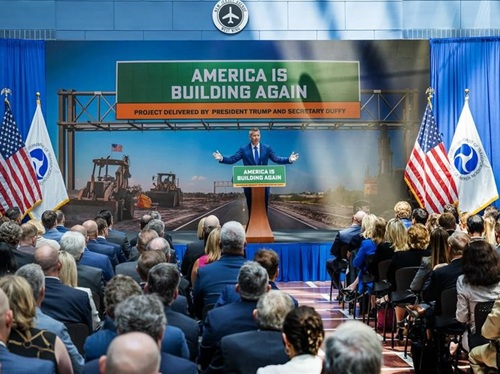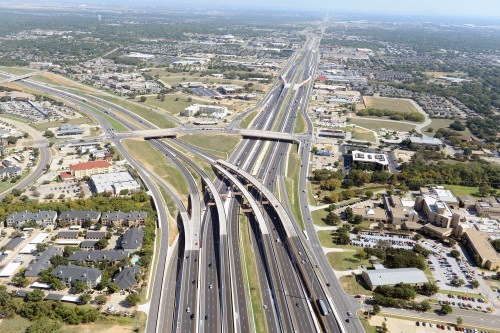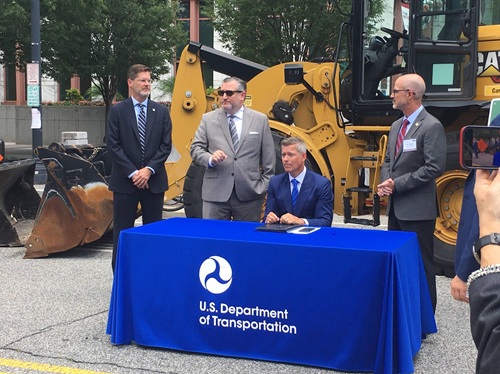In a World Economic Forum blog post, Hanns-Christian Hanebeck – the founder and CEO of Texas-based software firm Truckl – indicated that blockchain technology could eventually provide highway administration agencies with an “unprecedented set of capabilities,” from improving traffic volume flow to more efficient and faster toll collection efforts.
[Above photo via the Texas DOT.]
“The underlying technology enabling secure data storage and sharing, a high degree of privacy, and the automation of commercial transactions may well turn out to be blockchain,” he explained.
When coupled with connected vehicles via 5G wireless networks, Hanebeck said it could create new possibilities for toll road management.

“Every mile of road can be designated as a virtual toll road when vehicles communicate on 5G highway networks because they are simply always-on,” he noted. “Payments can be enforced selectively; for example, for commercial vehicles but not private ones. There are a wide variety of use case scenarios ranging from pay-for-speed and pay-by-time to payments for the monitoring of vehicle conditions or the implementation of financial rewards for certain behaviors.”
Hanebeck added that blockchain has “long matured from a ledger for cryptocurrencies into a transactional, computing paradigm and is ideally suited to handle many aspects of highway operations,” with the “business case resting on reductions in congestion, accidents and emissions as well as increases in road and cost efficiency.”
He pointed out that highway administrations would also gain the ability to leverage a blockchain solution to not just collect fees but to offer financial rewards as well.

“For example, in congested areas, it may be desirable to steer following traffic around an obstacle,” Hanebeck said. “The highway blockchain might contact all vehicles that are approaching a congested area but that are still between 15 and five miles away. By offering a payment for taking a detour, traffic jams are less likely to worsen, and vehicle operators may appreciate the opportunity to avoid it while they are rewarded at the same time.”
Hanebeck explained that by gaining the ability to influence behavior through financial fees and rewards, highway administrations act similarly to central banks in some ways.
“They use income from specific road usage scenarios to spend it on control of congestion and traffic in others,” he said. “The resulting revenues can be treated as a zero-sum game, or they can be used to improve infrastructure and safety.”
 Top Stories
Top Stories


